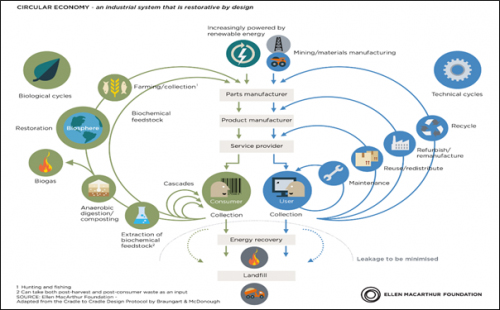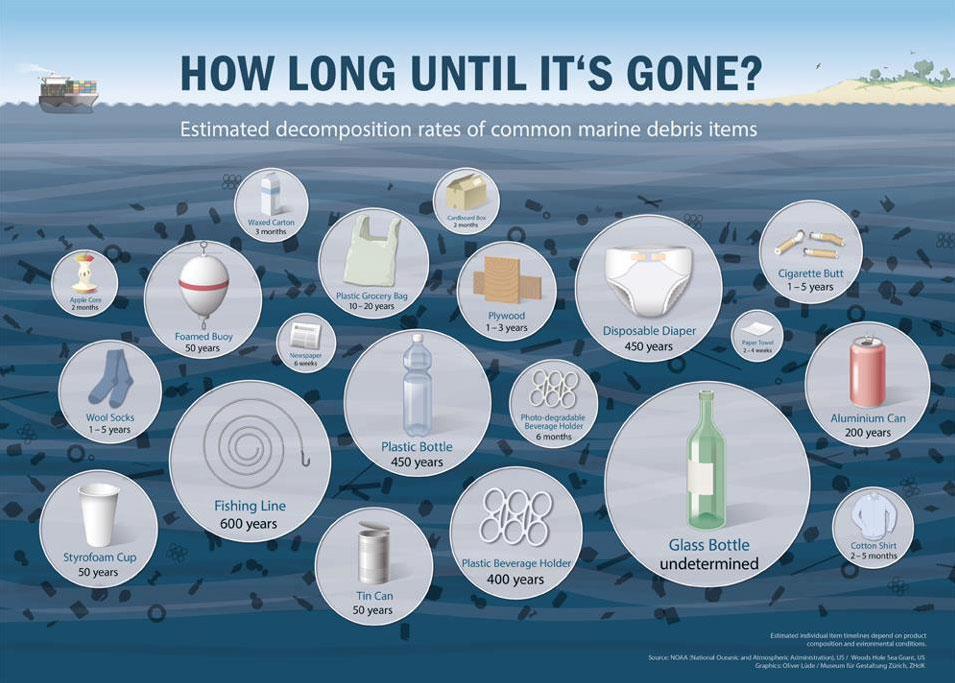The biggest challenge to sustainability lies in the current linear – take, make, waste economic model and an outdated energy system (WBCSD). Circular Economy brings all different and urgent topics cross-sectoral together in order to drive towards a low-carbon economy (and meeting the SDGs).
Rethinking, Redesigning use of materials, Reusing, Repairing, Refurbishing and Recycling. Here we support (Plastic) waste management issues, Recycle opportunities, incubate business solutions, design alternatives and collaborate with existing good practices and proven business models examples. It results in local manufacturing, job creation and value addition.
Start thinking circular

look at Philips new approach to light: from product to service.
HP – from product to service to be able to take back their own products of which they know the quality to repair, refurbish and recycle.
Close the Gap and WEEE centre from social enterprise that collects ‘old’ computers from big firms, refurbish them and provide schools with them, collects them and dismantles and recycled through the E-Waste recycler: WEEE Centre.
Dunia Design providing furniture made out of plastic collected at the beach
A-One Plastics making roof tiles and fencing posts out of recycled film and other plastics
using farm waste as their fuel and animal feed, TNO designs sanitary pads with biodegradable components and no plastics
Whats wrong with plastics?
Plastic is fantastic but the way we manage plastics is not good. We are great in enjoying the benefits but we are leaving a disastrous trail of pollution and destruction by not managing the Use, the collecting, the Reuse and the Recycle opportunities.
Lets face it:

Think food! For people, for planet, for business. Food for Thought. Circular thinking is all about the food thinking system. One material must be some ones food and another one and another one… here is how it works.
Waste = Food Why would anyone make something that has no value or has a cost?
Living systems are divers and the inspiration for a resilient Economy. Did you know that all designs, solutions and true innovations are based on nature. Cause in nature everything from design to function to life cycle is there for a reason and is perfection. And in autre there is no such thing as Waste.
Projects And Programs
Sustainable Inclusive Business identified an urgent need for Rethink & Refuse, Reduce, Reuse,
Recycle the materials in a few specific sectors:
- Plastic in the hospitality and tourism industry
Single use plastic are used once. Raw materials used once and very often ending up in the environment due to no (proper) recycling, reusing and waste management). This is a very limited and devastating way of using materials. Single use plastics are disposable plastics including; plastic bags, straws, coffee stirrers, soda and water bottles and most food packaging. Rethink, Reduce, Reuse, Recycle!What is your foot print of single use plastic per day, month or annually?START: We have three set challenges you can start today depending on the type of your business.Lets start to add value to consumers and the environment and be the change. That will only be good and positive marketing. - Sustainable inclusive meetings and events
For people to meet, share learn and grow, there involves a substantial amount of social and environmental footprint: This includes not only the location, but far beyond – participants may consume natural resources such as materials, energy and water, generate waste, create local air and water pollution, and contribute to climate change through greenhouse gas emissions. By taking sustainability planning into consideration, organizers have the opportunity to not only to minimize potential negative impacts but also, given the large number of stakeholders involved, concretely influence change by leaving a positive legacy and inspiring those involved to live more sustainably. - Plastic in the retail industry
Consumers are aware now than ever before, they care about how and where their products and their packaging are produced and are looking for sustainable brands. Retailers and packaging firms across the world are trying to reduce their environmental impact through new, innovative products and materials. - Plastic in the horticulture & floriculture industry
The sector is a large-volume user of pots, trays, care cards, sleeves and other items. Some growers have said the issue requires peer partnerships and joined-up thinking to tackle recycling of horticultural plastic from grower through to retail. Recyclable packaging or renewable alternatives need to be examined for practicability and fitness of use. - The Construction Industry (Sand, plastic, steel, cement)
Kenya’s vision 2030 recognizes construction as an enabler that will drive the country to become globally competitive and prosperous with a high quality of life by the year 2030. Global competitiveness however, requires businesses to rethink models & take responsibility for impact. Rethinking and creating circularity from not only rethinking materials, recycling materials but also re-designing new business models. There are a lot of great alternatives available as well as complete new innovations. All are contributing to a positive impact on environment (and people). The biggest challenge is – how to inform the sector and bring everyone together. That is Good for Business. - Water in the construction industry
Sensible use of water has a key part to play in making construction sustainable. Water supplies are a growing concern for the construction industry since it is required in the production process for many materials such as concrete and steel. Often this water is taken from drinkable water supplies, which is completely unnecessary and contributes to greater CO2 emissions to produce more, as well as producing waste that could be avoided. Technics are available, how about the regulations? Has the sector been informed, the cost-economic wins and the win for the water situation in Kenya? Explore as we bring businesses, solutions and the facts together. - Electronic Sector
Plastic, Copper, Iron, Gold & Glass: all these are used in the construction of electronic parts. They are also from non-renewable natural resources. Circular economy is about rethinking, redesigning and creating more value. Discover innovations, recycling & reusing opportunities. Great initiatives like Close the Gap are Refurbishing computers for schools but also making sure that those Refurbushed computers are being Recycled after use by WEEE Centre. They are not the only one. But Any business has computers, laptops, phones and other electronoic devices including a fridge. Where do you dispose those goods? Want to be linked? Want to do more? Do you know more? – be part of the E-Waste incubator Centre coming to Kenya in 2019.

